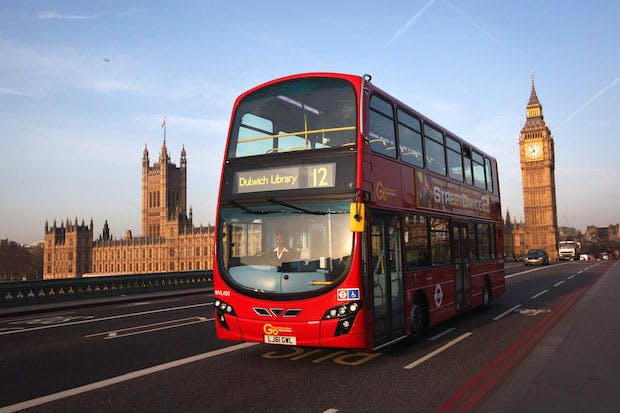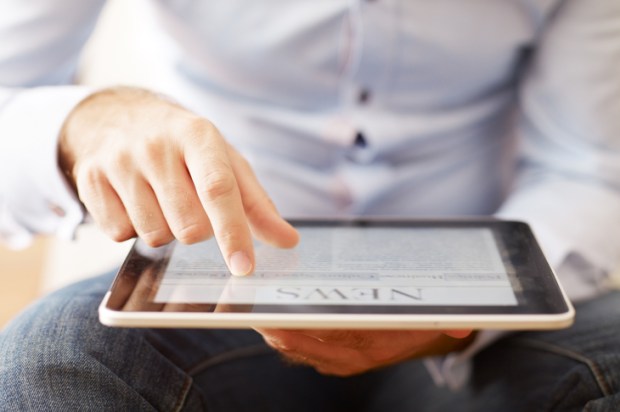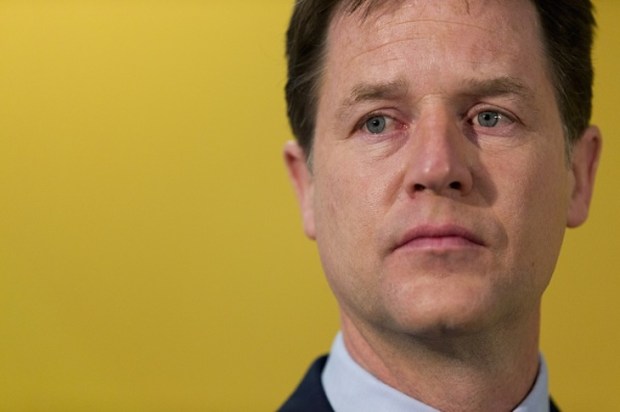I am one of those annoying, mildly claustrophobic people who sit at the end of a row in cinemas. There are plenty of things in life — films, plays, social events — which I can only fully enjoy knowing I can make a sharp exit at any time. It’s not that I leave: I just like to know I can. My idea of hell is a party on a boat.
So I am rather enamoured with the new mobile-phone app Qkr, which lets you pay with your phone in some restaurants without waiting for the bill. It’s the honest man’s version of ‘doing a runner’. You check in on your phone, give a four-digit code to the waiter or waitress, and then you are free to order extra items and settle up on your screen. This creates a perfect ‘third way’ between a restaurant and a fast-food outlet.
(The only slight downside of this technology is that my children ingeniously discovered that I now no longer need to be physically present in Wagamama to pay for their food. I recently paid for a mini chicken ramen in Sevenoaks from a hotel room in Athens, thereby fulfilling the teenager’s fantasy of the perfect dad — someone who pays for things while being as far away as possible.)
I have long believed that new payment technologies have much more effect on people’s economic behaviour than we expect. In many ways the credit card is the greatest consumerist mind-hack ever invented (if I had to pay for my holidays in cash, I would go to Pontins every year — in February). What you buy is surprisingly dependent on how you pay for it. So I duly predict that the new contactless payment cards will change behaviour more than we think.
Small transactions which are annoying as much for their hassle as for their expense (paying to use loos in stations, for instance) should be easier. Queues at coffee shops will shorten. But I suspect there is a subconscious appeal to contactless payment connected to the psychological idea of ‘flow’. Boarding a London bus feels decidedly less uncool now that you — and, more important, the people in front of you — no longer fumble with cash. Eventually, contactless cards will be able to replace paper tickets — not only on trains but at theatres and cinemas.
I also wonder whether the contactless card can help rescue the British pub. I don’t want to scandalise traditionalists, but the current system of buying drinks at the bar, along with the ‘round’ system, really dates back to a time of immovable tills and cash-only payment. A simple, portable payment device would allow table-service (once commonplace in British pubs, and surviving in Manchester and Liverpool until the 1960s) to stage a comeback, and make it easy for people to split the cost of a round. It would save you repeatedly having to return to the bar, which is usually thronged by a pub’s most misanthropic regulars or, in London, by a bunch of people planning a bank-job with the landlord.
Better still for ill-paid pub workers, it might allow tipping to make a comeback. Unusually for a Brit, I am quite in favour of tipping. In any transaction, it is the discretionary part that carries by far the most information. Meaning is overwhelmingly conveyed not by what you do, but by the things you do beyond what you’re obliged to do.
Some people don’t buy this. They claim that although service in the United States appears to be good, it is ‘really just insincere’, since people who appear to be friendly are merely chasing tips. But good customer service is a bit like sex for young men: you don’t really care what the motivation is just so long as you get some.
Got something to add? Join the discussion and comment below.
Get 10 issues for just $10
Subscribe to The Spectator Australia today for the next 10 magazine issues, plus full online access, for just $10.















Comments
Don't miss out
Join the conversation with other Spectator Australia readers. Subscribe to leave a comment.
SUBSCRIBEAlready a subscriber? Log in